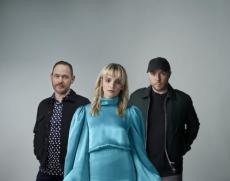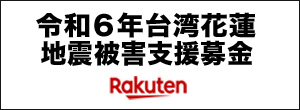「今回この新作で初めて、ジェンダーや、私がこれまでのキャリアや人生で経験してきたジェンダーにまつわることに対する自分の気持ちについて書いた」Interview with CHVRCHES about “Screen Violence”
NeoL / 2021年8月23日 17時0分
「今回この新作で初めて、ジェンダーや、私がこれまでのキャリアや人生で経験してきたジェンダーにまつわることに対する自分の気持ちについて書いた」Interview with CHVRCHES about “Screen Violence”
ローレン・ベイリーがThe Gurdianに寄稿した、SNS上での性差別についてのオープンレターが大きな反響を呼んだのは8年前のこと。以来、ことある場面でオピニオンリーダー的な役割を求められることにもなった彼女にとって、今度のアルバム『Screen Violence』はジェンダーにまつわることに対する自分の気持ちを初めて書くことができた作品なのだという。「すべての詩のラインは、私の人生において男性から実際に言われたことを皮肉ったり、言い換えたりしたものです」。そうプレスリリースで彼女が語るように、生々しい情景描写も交えて綴られる孤独、幻滅、怖れ、傷心や後悔といった感情の吐露は、どれも切実で、独白的な調子を色濃く帯びている。一方、今回セルフ・プロデュースで制作された『Screen Violence』は、サウンド面でもマーティン・ドハーティとイアン・クックが中心となり様々なアプローチが尽くされている。ザ・キュアーのロバート・スミスのフィーチャー然り、あるいは随所にハイパーポップ/グリッチ・コアの反響を窺わせるイクレクティックなエレクトロニックのプロダクションも印象的だ。結成10周年の節目を飾る作品を前にしてかれらは、その“雄弁さ”にますます磨きがかけられているように感じる。(→ in English)
――今回の「Screen Violence」というアルバムのタイトルは、そもそもバンドの名前として考えられていたワードだと聞いて驚きました。「Screen Violence」というワードは今にして思えば、この10年間を通じた人々の意識や行動の変化、デジタルテクノロジーの加速によって促された社会のありようを言い表しているという意味で、予言的だったという印象を抱かせます。当時はどういう経緯でこのワードを思いつき、またバンド名にしようと考えたのでしょうか?
ローレン「この名前を推してたのは2人のどっちかだったと思う(笑)」
マーティン「僕じゃないと思う」
イアン「じゃあ僕で(笑)」
ローレン「いずれにしろ当時考えてた名前は、結構ヴィジュアル的というか、私たちが参照していた音楽の時代まで遡る感じのものが多かったですね。でも最終的に『Screen Violence』を選ばなかったのは、ちょっとそのまんますぎるというか、単なる80年代の模倣バンドだと思われたくなかったから。でもホラー映画の美学だったり、そういった映画やサウンドトラックもすごく好きだから、今回そういったビジュアルを元にしてアルバムに面白いストーリー性を持たせることができるんじゃないかと思ったんです。歌詞でも『Screen Violence』という言葉について、色々語れることがあると思ったし」
――「スクリーン上で (on screen)、複数のスクリーンによって (by screens)、複数のスクリーンを通して (through screens)」という今作のテーマについて改めて説明をお願いできますか? 「screen」は「インターネット」や「ソーシャルネットワークサービス」とも言い換えられるかと思いますが、そうしたテクノロジーは社会から疎外されている人々を活気づけるものである一方、その暴力性や負の側面に今回フォーカスが当てられた背景に興味があります。
ローレン「最近デイヴィッド・クローネンバーグ監督の『ヴィデオドローム』を改めて観たんだけど、あの映画って結構前に作られたのに、クローネンバーグがあの映画で言っていたことって今でも全然古びてなくて、ただスクリーンの種類が違うだけ。昔はみんな映画やくだらないテレビ番組が子どもに悪影響だと言っていて、今はそれがゲームになっていて、だから時代ごとに変わっていくだけなんだよね。歌詞ではパーソナルな経験について語ると同時に、そういうことについても言いたかったんだと思う」
マーティン「別にそういったメディアが悪いわけじゃないんだ」
ローレン「人だよね」
イアン「そうそう」
マーティン「そう、でも人でもないっていうか。知らないことに対する恐怖なんだと思う。古い世代が若者を批判するっていうのもそうで、自分たちが知らない新たな技術によって問題が生じると若者を批判しがちだよね。ゲームが悪い、暴力的な映画が悪い、それで今はSNSが悪いと言われてるわけだけど、そうじゃなくて人間なんだ。それと世代間の対立」
ローレン「あと今回、特に歌詞を書く上で楽しかったのが、まずこれは別にコンセプト・アルバムではない。だからホラー映画をテーマにしたストーリー仕立てになっているわけではなく、自分のパーソナルなストーリーをそういうレンズを通した風景の中で語るっていうもので。その作業は楽しかったし、ある意味で自由になれたというか。このテーマがなかったら入り込んでなかっただろうなという領域にも入り込んでいけたと思う」
――ベイリーさんが書くリリックはこれまでも常に個人的な視点を出発点としていて、時代や周りの意見を意識してというよりも、その時々の自分の正直な意見を伝えているというものです。実際、今作の曲も、自分の感情と経験から紡がれたパーソナルなものだと発言されています。一方で、『Screen Violence』というアルバム・タイトルは、自分の姿があらゆる場所で放送され、保存され、拡散されていくことと戦わなければならない今のデジタルネイティヴの世代を言い当てているようにも感じられます。
ローレン「何だろう……私たち全員にとって過渡期だったというか、バンドとしてもそうだし、個人的にも歌詞を書く上で自分の安全地帯から少し出てみたいっていう気持ちがまずあった。私はニック・ケイヴとかジェニー・ルイスとかがすごく好きなんだけど、彼らが描くストーリーはパーソナルでありながら物語的で修辞的。でも私はこれまで自分なんてニセモノだみたいなコンプレックスがあって、『いや詩人じゃないんだし、おこがましくてとてもそんな詩的な歌詞なんて書けません』みたいに思っていた。でも今回、自分に厳しくしすぎるのをやめて新しいことをやってみたんだよね。そこはバンド仲間を信頼して、もし私がひどい歌詞を書いたら指摘してくれるだろうと思ったし。そうやってお互いを励まして、これまでと違うことをやってみることができて良かった。やっぱり3枚作ったあとだし、何度も同じことを繰り返すのではなくて発想を変えてみるっていうのは健全なことだったんじゃないかと思う」
――2013年にあなたがThe Guardianにオープン・レターを寄稿して、SNS上での性差別について意見を表明したことは、#MeTooや#TimesUpの動きを先駆けていたのはもちろん、それから8年後の現在の状況と照らし合わせてもアクチュアルなステートメントでああったと思います。一方で、それをきっかけにあなた自身、何か/誰かの代弁者であることを求められ、期待され、必要以上の責任や負担を背負わされることが多くなったのではないかと想像します。近年、ポップ・スターのみならずアートやエンターテインメントの表に立つ人間は、何にどう反応するか、どんな意見を表明するかがますます問われ、それを強いる圧力、ある種の暴力性はますます強まっている傾向が感じられます。そうした風潮が表現やクリエイティヴに及ぼす影響についてはいかがお考えですか?
ローレン「今回この新作で初めて、ジェンダーや、私がこれまでのキャリアや人生で経験してきたジェンダーにまつわることに対する自分の気持ちについて書いた。ただ、これまでもずっとこのバンドの語られ方自体が、常にジェンダー、フェミニズム、インターネットみたいな感じだったわけ。だからあれは一種の自己言及的な予言だったのかなと思う。個人的な経験は、自分が生きている世界の中での経験であって、たとえば私のキャリアは私が女性であることに基づいている。そして私が書くものは私の経験に基づいていて。私は常にいろんな人からいろんなことを言われながら、そういったことを思い知らされてきた。だからつくづく自分自身のことを予言してたんだなって思う。これまで書いてこなかったけど、アルバムを3枚出すなかで、散々そういうことを言われて、私のここが正しいとかここが間違っているとか指摘されてきて、それで今回初めてそういうことについて言及する気持ちになって」
――ええ。
ローレン「作った曲に対する反応がかなり良くて嬉しいけど、これはメッセージ・ソングを書こうということではなくて、あくまで個人的な視点で書いたもの。でもそれに共感してくれる人たちがいることは、すごくありがたいし心強いなと思う。もちろん一方で私は、メディアや社会の変化によって誰もが自己防衛に走りひたすら流行りを追いかけるようになったなっていう邪な見方もしてる。もし2年前に“He Said She Said”や“Good Girl”をリリースしていたら、特にメディアからのバックラッシュはすごかっただろうし、一部の男性ジャーナリストの反応はもっとひどかったと思う。でも今はもうそれと同じことは許されなくなったよね。まあ、今も時々は幻滅したり疲れたりするけど、どこかの時点で自分のことに集中しなきゃいけない。特に何かそういった話題がトレンドになって多くの人が語ってると、みんなが自由に安全に意見を言えると感じたから自分の立場を使って言うようになったのか、それとも単に便乗して言ってるだけなのか知らないけど、うっすら怒りを感じたりはする(笑)。『今そうやってハッシュタグつけたりTシャツ着てるあなたはあの時どこにいた! どこにもいなかったじゃん!』っていう。とにかく今後どうなるか分からないし、これから先も長い道のりであることは確かだよね」
――ちなみに、今回のアルバムの中で、それぞれにとってもっとも意味のある曲はどれですか?
イアン「僕はロバート・スミスが参加している“How Not To Drawn”かな。マーティンが作ったあの曲のデモを聴いた瞬間、感情の部分に響いたというか、『すごい、なんて唯一無二でパワフルな曲なんだ』と思った。それからみんなで作り込んでいって、最後に花を添えてくれたのがロバート・スミスで、それでより一層素晴らしい曲に押し上げられたと思う。僕は、たぶんバンドとしてこれまで作ったもののなかで最高の曲だと思うし、すごく誇れる曲だね」
マーティン「僕は、今日のところは“Better If You Don’t”かな。今ちょっとホームシックだから」
ローレン「私も。どうしてだろう?」
マーティン「あの曲を聴くとグラスゴーを思い出すんだ。デモで弾いたギターがそのまま残ってるんだけど、それがギターを始めたばかりの若い頃に、悲しいコードを覚えては弾いていた自分の演奏スタイルを思わせるものがあって。長年を経てそれなりに経験を積んだミュージシャンとして、なおそういう曲を書くというのが興味深いと思ったんだよね。昔とは自分と音楽との関係性もメロディとの関係性も変化しているのに、依然としてああいうごくシンプルなフレーズを使ったという、だから初めの一歩からDNAに組み込まれていたのかもしれない」
ローレン「私はアルバム1曲目の“Asking For A Friend”かな。あの曲にはすごくカタルシス効果があるような気がする。歌詞は、後悔したり、もっと違うやり方があったんじゃないかと悔やんだりして、でも自分が大事だと思うものを大切にしようっていう内容なんだけどね。たとえば『And the mess we made on Fridays/gave me Sundays on my knees(金曜に二人の間にゴタゴタがあって/日曜に崩壊寸前になった私)』っていう一節があって、それは昔の、週末に派手にやらかしたりしてた頃のことで、だからこの曲もグラスゴーなんだよね。ちなみに『on my knees(膝をつく)』の部分は、信仰心は別にないけど日曜は教会に行くからか、二日酔いが酷すぎて立てないからなのかは定かじゃない(笑)」
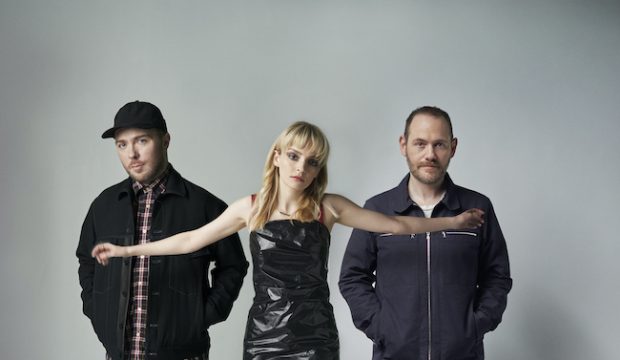
―― 一方、今回のサウンドについては、デペッシュ・モード、ザ・キュアー、ブライアン・イーノなどからインスピレーションを得たそうですね。「自分にとって最も安らげる音楽が欲しかった」ともベイリーさんは発言されていましたが、サウンドについてはどんなアイデアなりコンセプトがありましたか?
イアン「このバンドとしてはいつものことだけど、サウンドを作り始めるにあたって特に具体的なアイデアはなかったと思う。ごく自然に形になっていくというか。今名前が挙がったバンドの影響もそうだし、それ以外にもたくさんいるんだけど、それはこれまでも常にあったもので、このバンドが創作する上でのクラウドみたいなものとしてそこに浮かんでいるというか。そしてある時にそのうちのどれかが表面化してくるんだよ」
マーティン「作品ごとの違いは自分たちのミュージシャンとしての進化の現れだと僕は思っていて。だからそういう意味ではヘヴィメタル・バンドにいようがチャーチズにいようが変わらない。僕にとって興味深いのは、自分がその時に聴いている音楽ではなくて、意識的なものか無意識的なものかは別として、その時に使う機材だったりテクニックだったり新しく学んだことだったり、ミュージシャンとしてはそういうものから影響を受けている気がするし、それがアルバムにも入り込んでいると思う」
――前作『Love Is Dead」は、共同プロデューサーとしてグレッグ・カースティンやスティーヴ・マック(エド・シーラン)が迎えられた事実からも、リズムに関するヒップホップの影響など、同時代のメインストリームのポップ・ミュージックのプロダクションが意識された作品だったと思います。ただ、3年前にプロモ来日した際にインタヴューさせていただいたとき、おふたりはそうした新たなアプローチについて興奮気味に話していたのとは対照的に、ベイリーさんはあくまで「自分が表現したいもの、個人のテイストというものを大事にしている」といった発言をされていたのが印象的でした。今作のサウンドに関する個々のアプローチというのはどのようなものだったのでしょうか?
ローレン「まずその発言は、バンド内で誰が何をするかっていう役割分担があるからだと思う。私は正直プロダクションのことなんてこれっぽちも知らないし楽器も全部イアンとマーティンがやっているから、そのインタビューであなたが受けた印象も、制作過程でそれぞれの役割があるっていうところからきてたんじゃないかと。今回はとにかく、前作よりもうちょっと深く掘り下げようっていうことと、何か新しいことを試そうっていうことを思ってた。前作と違いすぎるとかごちゃごちゃ考えずに、思い切って色々試そうっていう。縛りがありすぎると頭の中で迷子になっちゃうから。今回はまずタイトルがあって、それはこれまでにない作り方だったし楽しい冒険だった」
――先日公開されたThe Guardianの記事でベイリーさんは、ビリー・アイリッシュの作品におけるヴォーカル・プロダクションを例に出して、ポップ・ミュージックの進歩の素晴らしさについて話されていました。ただ、そうしたポップ・ミュージップの進歩から取り入れるもの/学ぶべき部分と、逆に取り入れない/学ばない部分との間に線を引くことの大切さを強調されていたのが印象的でした。今作はセルフ・プロデュースに戻っての作品になりますが、具体的に今作のサウンドにポップ・ミュージックの進化や変化がもたらした影響、逆にそうしたポップ・ミュージックの影響とどう一線を引いたところで今作は制作されたのか、その辺りについて伺いたいです。
ローレン「あの記事のビリー・アイリッシュについての私の発言は間違った引用というか、端折りすぎてて。まず、そういった音楽が自分たちの音楽にどう影響しているかっていう質問があり、私は『素晴らしい部分はたくさんあるけど、それが必ずしも自分たちの曲作りに直接繋がるわけじゃない』みたいな感じで答えたら、勘違いがあったのか記事を読んだら『チャーチズの今度のアルバムはビリー・アイリッシュ風!』となってて、そんなこと言ってないよ!っていう(笑)。というわけで、続きは2人にどうぞ」
マーティン「ええと、一線は引かないかな。ジャンルや趣味で線引きするべきではないと思う。僕は自分が大好きなものから学ぶのと同じくらい嫌いなものからも学んでいると思うんだよね。心を開きさえすればほんの些細なミクロな学びがたくさんあるし、それを吸収できるんだ」
――例えば、“He Said She Said”の印象的なヴォーカル加工やエキセントリックなエレクトロニック・プロダクション、“Nightmares”の熱狂的なメロディやダイナミックなビルドアップとドロップには、昨今「ハイパーポップ(またはグリッチコア)」と呼ばれる音楽ジャンルとシェアされる特徴やスタイルを聴くことができます。リスナーとしてその手の音楽に触れたり感化されたことはありますか?
マーティン「短く答えるとイエス。実は以前A.G.クックとは一緒にやったことがあって、ちなみにすごく良いやつなんだ。彼に“He Said She Said”がすごく好きだって言われて、それで僕もPC Musicが好きだって返したんだけど。新しいものに影響を受けるのは健全なことだと思う」
イアン「誰から影響を受けるにしても、それを自分の趣味とどう合成するかが大事で、それによって素晴らしいオリジナルな音楽が生まれるんだ」
マーティン「今時ビートルズみたいな曲を作りたいとは思わないけど、もし1週間ビートルズを聴き続けたら何らかの影響を受ける可能性は大きいと思う。だからたぶんPC Musicを結構聴いてた気がするし、それからポップも、あとはチャーリー(XCX)とクリスティーヌ(・アンド・ザ・クイーンズ)が一緒にやった曲とかね」
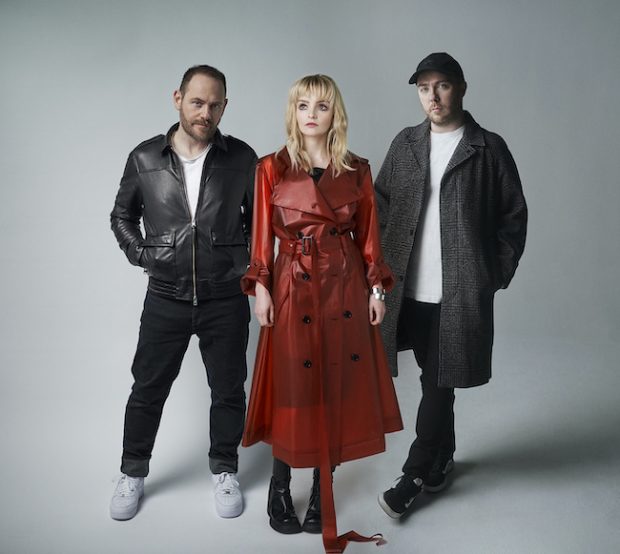
――ベイリーさんは今作について「確かにチャーチズのDNAを持っているが、これらの曲は最初の3枚のレコードのどれにも当てはまらないと思う」と発言されていました。今作はバンドにとって結成10周年を飾る作品となるわけですが、現時点で今作は、バンドのヒストリーにおいてどんな意味を持つ作品になりそうな手ごたえなり予感がありますか?
マーティン「個人的には作品を区別するのは難しいと思ってる。基本的にアルバムを作るごとに何ヶ月ものハードワークがあり、心血を注いで、何度も聴いて多くのことを学んで成長するという過程があるんだけど、振り返ってみると、なるほどそういうことだったんだなって納得するというか、それ以前に作った全てのアルバムも旅の一部としてそこにあることが分かる。だから、実際にやりたいかどうかは別として、新作のどの曲もピアノだけで弾けばこれまでのチャーチズに入っててもおかしくないかもしれないと思う。僕らが作っていることの核心はその部分、つまりソングライティングだからね。ただ最終的なサウンドは全然別物になっているっていうだけで。それはこのバンドのキャリアを貫く一本の線としてあると思う」
ローレン「同感。それとこの作品の受け止め方っていうのがそのインタビュー後に少し変わってきてるっていうのもあると思う。あのインタビューはたぶん2020年の12月とかそのくらいに受けたもので、あれが今作の最初のインタビューくらいだったと思う。時間が経ってみると、作り終わった直後とはちょっと見方が変わってくるというか。それに今はこの作品をプロモーションしているけど、すでに新しい音楽を作り始めているから、そういうちょっと距離がある状態でアルバムについて語るのは不思議な感じで、これまではなかったから自分たちとしても興味深いというか。良くも悪くもこれまでは気持ち的に超新鮮な状態で取材を受けてきたからね」
マーティン「それはまさにその通り。先週同じ質問をされたら違う答えを返してたと思うし(笑)。時間とパースペクティブによって見えるものは違ってくるよね」
イアン「それにツアーが始まるとまた見方が変わるんだよね。毎晩演奏しているうちに、楽曲と自分との関係が大きく変わってくるんだ。それに人の反応を毎晩のように直に目の当たりにすることでも変わってくる。自分が感じていることが裏付けられたり、覆されたりしながらね」
photography Sebastian Mlynarski/ Kevin J Thomson
text junnosuke Amai
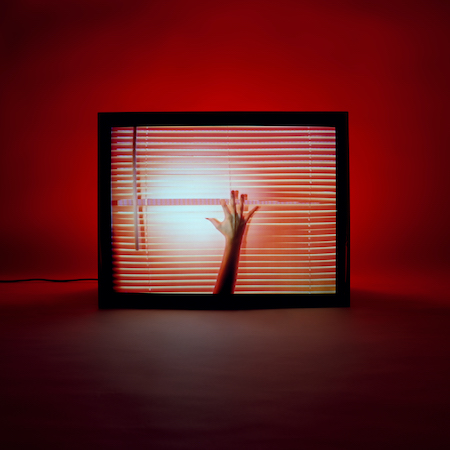
CHVRCHES
『Screen Violence』
(CHVRCHES, under exclusive license to Beat Records)
2021.08.27 FRI ON SALE
国内盤特典:
ボーナストラック追加収録/解説・歌詞対訳冊子封入
BEATINK.COM:
https://www.beatink.com/products/detail.php?product_id=11899
AMAZON:
https://www.amazon.co.jp/dp/B096FV18ST
TOWER RECORDS:
https://tower.jp/item/5207720
TRACK LIST
01. Asking For A Friend
02. He Said She Said
03. California
04. Violent Delights
05. How Not To Drown (feat. Robert Smith)
06. Final Girl
07. Good Girls
08. Lullabies
09. Nightmares
10. Better If You Don't
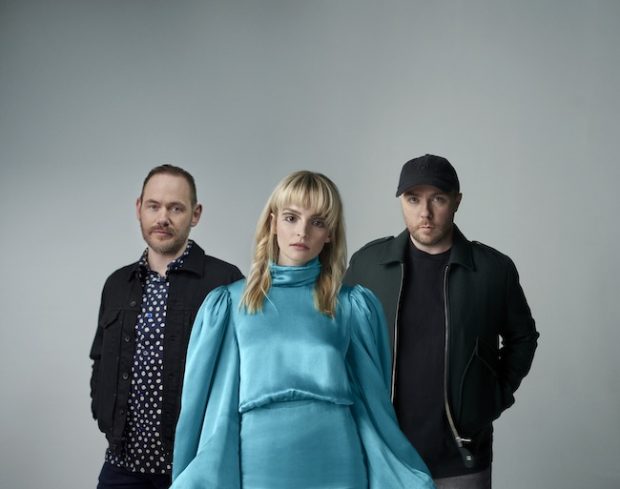
-The title of the new album, “Screen Violence” was originally a band name you came up with 10 year ago. In hindsight, the term “Screen Violence” seems to be a prophetic. It does explain the change in people’s attitudes and behavior in the past decade, and the state of society prompted by acceleration of digital technology. Do you remember how you came up with the name, or why you thought it would be a band name? The last time I talked to Lauren apparently it was Iain who wanted this name.
Lauren: I think it essentially was one of you guys. I don’t think it was me.
Martin: It’s not me.
Iain: Then it’s me.
Lauren: A lot of the names we were coming up with, we wanted something very visual, and parked back to the era of music we were referencing. At the end we didn’t choose Screen Violence was because it seemed too literal and we didn’t want people to feel the band was just an 80s pastiche. We all love that kind of horror aesthetic and those movies and the soundtracks from the movies as well. So it made a lot of sense.
It seemed like we could build a cool narrative or story around the record and the visuals. For me, lyrically, there is a lot to say about the term screen violence as well.
-Can you elaborate on the theme of this album? You mentioned that the theme of this album was about “On screen, by screens and through screens”. Here the term ‘screen’ refers to horror movies, cinema, television or even the internet and social media. As it connects people from marginalized communities, what made you focus on the violence aspect of it?
Lauren: Each of us recently rewatched the “Videodrome”, the David Cronenberg film and we were talking about how that film was made relatively long time ago.
What Cronenberg was seeing is still very relevant, it’s just a different screen we are talking about. Everybody used to think that movies and dumb tv were killing kid’s minds, and then it was video games. I think that there is a version of that for every decade and generation. We wanted to talk about that and personal stories and weave those narratives together to create all this imagery.
Martin: None of all these things were source of evil. Like digital media is not the problem.
Lauren: It’s the people
Iain: Yea
Martin: And people are not the problem either. It just the fear, the fear of the unknown. People are also afraid of young people. Many time it’s a technology that they don’t understand that rise to problems and that’s when older people offend the younger people. It’s an interesting stand point where we think games are the problem, violent films are the problem, social media is the problem. When in fact, its humanity and it’s a generational thing.
Lauren: I guess what has been fun for us, for me especially, was the lyrics. It’s not a concept record in terms of songs or stories about horror movies. It’s more about getting to tell personal stories in this specific landscape and through this lens. That was really fun for us. It was kind of freeing in a way because it took us into a new space.
-The lyrics you write, you start from a personal point of view, you mentioned that the songs in this album are also very personal. It is based on you on personal experience and honest emotions you felt then. Can you list the specific influences you had on your writing other than what you already mentioned?
Lauren: I feel like it was a transitional time for all of us and the band. For me personally, I knew I that I wanted to push myself out of my comfort zone in terms of writing. The people I really love who are Nick Cave and Jenny Louis who can write these stories. They know they are personal to them but they are a lot more narrative of what they are doing. They are not afraid to put in imagery. I wonder if it’s a imposter complex, but I always feel that I’m not a poet so why should I presume to write poetry in my songs. But once I stop being hard on myself and just try. It’s about trusting your band mates and trusting each other. If something was cringe worthy or terrible, they would tell me and we would figure out. It was nice to be able to support and encourage each other to try different things. It was helpful especially after three albums to change your mindset a little bit, so you aren’t doing the same things over and over again. I find that very freeing.
-In 2013 Lauren, you wrote an open letter to the Guardian expressing an opinion about sexism on social media. As a precursor on the #MeToo and #TimesUp movement on social media, 8 years later, it is still as relevant and an important statement. I imagine, this has put you in a unexpected position, as a speaker and representative, therefore given immense responsibility. Sometimes more than necessary. In recent years pop stars, artists and entertainers are expected to respond on certain issues. How do you think it impacts on the creativity or expression?
Lauren: I think it’s interesting on this new record that, for the first time, we wrote about gender or our feelings that happened throughout our career. So much have been written about gender, feminism, the interenet. It’s a self-fulfilling prophecy. Your experience as a person is forged by what you do in the world that you live in. My career is forged by me being a female, what I write is forged by my life experience. So people are constantly reminding you of the things all the time. It was a self-fufuilling prophecy, eventually I was going to write about it. I didn’t write about it before. It was three albums of people talking to me to write about it and telling me what was right and what was wrong. So it’s the first time we addressed it and it was awesome to see how people respond to the songs. We didn’t go into writing message songs, they are just personal perspectives. And it’s been very humbling and reassuring to see that resonate with people. As much as I’m cynical about how much the media and society have changed, whether they are covering their backs and doing whats on trend, I believe if we release “He said She Said” and “Good Girl” two years ago, the backlash from the media and male journalists would have been way worse. But you can’t get away with that the same way anymore. It’s interesting and I’m glad that we had strengths in our convictions and had integrity about those things. I think now its certainly hard to not get dissolutioned or tired. I have to focus quite hard to not feeling embittered about those things. Especially when you see it become a trend and more people talking about it. It’s hard to know whether that is because people feel safer to use the platforms to say those things, or whether they are saying those things because it’s easier so they can actually say what they think. I have a tiny cloud of rage, I’m like where were you when the chicks were there and you were nowhere. But now you are wearing a #feminism t-shirt we are all supposed to be happy. But I don’t know how it will end and the road is long ahead.
-Which song on this album was the most significant one to each of you and why?
Iain: I think the one that is most significant to me is “How not to Drawn” . The one with Robert Smith. The very first moment I heard the demo that Martin did, immediately I was like that song got something really unique and really powerful. The more that we worked together, obviously the icing on the cake was Robert Smith, it kept levelling up and elevating it. Just to me I think it’s the best thing that we have ever done as a band. I’m so proud of it.
Martin: I think the one that is most significant to me is “Better If You Don’t”. Just because I’m feeling very homesick right now.
Lauren: Me too, what’s happened?
Martin: The song reminds me of Glasgow. The guitar on the demo ended up staying on the song. I like that. It reminds me of my playing style when I first played the guitar when I was young. I played sad chords on the guitar and having developed into a musician years later, reconnecting back to that style. With a different relationship with music and different relationship with melody, using the very simple building blocks. To me it’s nice to see it ended up on the album.
Lauren: I think my favourite one is “Asking For A Friend” which is the track that opens the record. Just cause it feels like a Cathartic song to me. Lyrically it’s about things you regret, things you wished had been different or wished that you’ve done differently. It’s about holding on to things you do care about and what you do matters. There is lyrics that is about Glasgow as well. The song doesn’t have verses, but there is a line in it that “The mess we made on Fridays gave me Sunday on my knees” it was about the messy weekends we used to have and you would make terrible mistakes. Either your on your knees on Sundays because you are at church or you don’t believe in or you are in a two day hangover.

-According to the Guardian article, you drew inspiration from the Depeche Mode, The Cure, Brian Eno for writing this album. What kind of ideas or concepts did you have for the sounds in the album?
Iain: I don’t think we really set out with any specific ideas or influences or refences points. As usual with this band, it grows organically. All of these influenes plus many more have always been hanging around in the creative cloud of this band. I guess some of them rise to the surface while others don’t. Certainly we didn’t discuss any big ideas or things that was going to be different this time.
Martin: To me the difference is how we evolve as musicians over the years. Therefore influences would be there wether I was in a heavy metal band or whether I was in Chvrches. I’m not sure if that concisiously seeps into what we do, it probably does in a subconscious level. But the types of exploration that I do on what is exciting to me and the studio. Quite often we use techniques and new ways of learning. These have a huge influence on me as a musician and they find their way on the album. So like all these old things, like The Cure and Brian Eno, they form a big bubble. They are in the bubble but we change and they don’t change. But sometimes new things come into the bubble, some things evaporate. It’s more about how we evolve than anything else.
-In your last album, “Love Is Dead”, Greg Kurstin and Steve Mac were brought in as co-producers. Production of mainstream pop music including hip hop influence, was a point of reference in the last album. In our previous interview, during your promo visit three years ago, it seemed to us that Iain and Martin were excited about the new approach. Lauren was more focused on what you wanted to express in your personal taste. What was your personal approach to the sound of this album?
Lauren: Maybe that’s because of the division of labor in the band and who does what. I don’t know much about production to be honest. I don’t make any of the instrumentation, that’s all Iain and Martin. I guessed you picked up on how we play a different role, in the process. I think the only brief I can give myself is that I needed to dig a bit deeper and try something a bit different. Just allowing yourself to try different things and not worry about if it doesn’t sound like the last record. I feel like that’s where you get lost inside your head with too many restrictions in your head. I think we had a title to start with, which we never had before. So, it was a fun exploration.
-In the same interview with the Guardian, the vocal production of the Billie Eilish album is absolutely phenomenal and that is another advancement in pop music. You also mentioned that there are things you should learn, like production tricks, and there are things you shouldn’t learn as well. Since this album is written for self-production, I would like to ask about the influences of the evolution of pop music sounds in the album. In doing so how did you draw the line between pop music influence and the production of this album?
Lauren: The Billie Eilish quote on the article was a misquote, there was more to the front of that. People were asking how the talk on music affects how you guys make things. I said that there is a lot of things to be admired but that’s not necessarily the direction we should be narrating with. Then it got confused and I saw some news go, “Chvrches going to make album that sounds like Billie Eilish”. That’s not what I was trying to say. But yes, I will defer to the guys.
Martin: I don’t, and I don’t think anyone should draw a line between genres or tastes or how one thing ends, and another starts. As humans, listeners, appreciators we subconsciously go on board and have favorites. I learn just as much from music that I hate and the music that I like. These are all miniature lessons that you can soak up if your mind is open.
-“He Said She Said” has this impressive vocal processing and electronic productions. The song “Nightmares” has frantic melody, a dynamic buildup and a drop. We can hear the characteristics and styles of these songs shared by Hyper Pop, Glitch Core music. As a listener have you been exposed to that category of music?
Martin: Yes, is the short answer. I have actually worked with A.G. Cook in the past. He is a very nice man and he approached us after “He Said She Said” came out. He said to me in the studio “Oh, I really like He Said She Said” and made sort of a knowing smile towards me. I told him that I really like PC music smiling back. That was a fun moment. It’s healthy to be influenced by modern things too.
Iain: I think it’s not about who you are influenced by, it’s about how you synthesize those influences based on your taste. It makes original music.
Martin: We don’t decide that today we make music like the Beatles. But if we listen to Beatles music for a week, there is a good chance there is some sort of influence in that. I was probably listening to PC music, and pop too that A.G. Cook produced most of it. I was also listening to Charli and Cristine the song they did together.

-About this album, Lauren you said, “It definitely got the Chvrches DNA, but I don’t think that these songs could slot into any of the first three records”. For you guys, what makes this album different from the previous ones and what makes it special? It would be ten years since you formed the band. To the band’s history, how significant would this album be?
Martin: I guess it’s not for me to differentiate. When I go back to the earlier material, maybe the second album, I hear the beginnings of the band that we became. Every album we made was just a stage of evolution to where we are now. In a lot of ways, I feel like we were going to be in this band we are today. But in order to get there we have to do all the research and development. It’s several months of work, a lot of listening, learning. In the back of mind when I look back, some things make perfect sense, everything is part of the journey. And it does make it unique. Many of the songs can be broken down into the piano. It could have existed on the previous albums. Because the core is in the songwriting. I think that’s what makes it unique.
There is definitely a line that runs through the band’s career.
Lauren: I feel like I agree with that. Also, I think what we feel about the record is probably changed from that interview. That interview was in December 2020 and it was like the first interview of this whole cycle. I feel like I reflect and connect differently to a record when a lot of time has passed. In the media aftermath, it’s so fresh and you see things a bit differently after a certain amount of time. It’s also weird how we are promoting this record, but we are already working on new music so it’s interesting to talk about an album with a bit distance between its which really haven’t happened before. We’ve just finished a record and we promote it right away. It’s so fresh emotionally in both good and bad ways.
Martin: That’s absolutely true. I didn’t even know that the greater distance you have from a piece of work, the more it starts to look differently. Sometimes it reveals new things you love
Iain: Yea, I think we all have a different perspective on the albums when we start touring with the songs. We are playing them every night and that always have a big change with the relationship with your songs and work. Especially when you constantly see how people react to your work, face to face, in terms of an audience, it sometimes confirms your feelings or changes them in a way.
photography Sebastian Mlynarski/ Kevin J Thomson
text Junnosuke Amai
関連記事のまとめはこちら
https://www.neol.jp/music-2/
外部リンク
- Yohji Uchida、マザーファッ子、MAMY、Marfa by Kazuhiko Fujitaそして原島“ど真ん中”宙芳。EBISU BATICA『THE CARTEL』による豪華コラボ祭りが予約開始
- 「今回この新作で初めて、ジェンダーや、私がこれまでのキャリアや人生で経験してきたジェンダーにまつわることに対する自分の気持ちについて書いた」Interview with CHVRCHES about “Screen Violence”
- 名作『神様ごっこ』から5年。イ・ランのオリジナル・サード・アルバム『オオカミが現れた』が完成
- 女性アーティストコラボ第 4 弾。未来への希望を込めた「ビールはいかが?」BimBamBoom×村里杏
- OKAMOTO’Sのアドレス帳 Vol.42 中尾憲太郎 & オカモトショウ
この記事に関連するニュース
-
ICMG Nextが東京レインボープライド2024へ参加
PR TIMES / 2024年4月19日 16時40分
-
【東京グレートベアーズ】ラファエル・アラウージョ選手 退団のお知らせ
PR TIMES / 2024年4月11日 18時40分
-
未来を切り拓く、世界の才能が集結 - FingerVisionが世界から選ばれた優秀学生へのインターンシッププログラムを開始
PR TIMES / 2024年4月4日 15時40分
-
日本ゼオン、偽造防止にもなる新素材を取り入れたアート作品を世界初披露
PR TIMES / 2024年4月4日 9時45分
-
芸能事業「UQプロダクション」を開始し、社長自らアーティストデビュー
PR TIMES / 2024年4月2日 12時15分
ランキング
-
1ゲームプログラミング入門書、横浜の15歳が完成 「ないなら自分で書く」制作経験盛り込んだ380ページ
カナロコ by 神奈川新聞 / 2024年4月22日 11時30分
-
2迷惑おじさんキャンパーの“ある行動”のせいで家族キャンプが台無し。注意するとまさかの反応
女子SPA! / 2024年4月14日 8時47分
-
3【春から夏に増える肌の悩み】ニキビ、乾燥に大差をつけた1位はこの季節だからこそ対策が必要な回答
よろず~ニュース / 2024年4月22日 12時10分
-
42ストロークエンジン車は、なぜあまり見かけなくなったのか?
バイクのニュース / 2024年4月22日 9時10分
-
5札幌市、長谷川岳参院議員と職員との面談はすべて録音へ 威圧的な言動を抑止
産経ニュース / 2024年4月23日 16時28分
記事ミッション中・・・
記事にリアクションする
![]()
記事ミッション中・・・
記事にリアクションする

エラーが発生しました
ページを再読み込みして
ください



